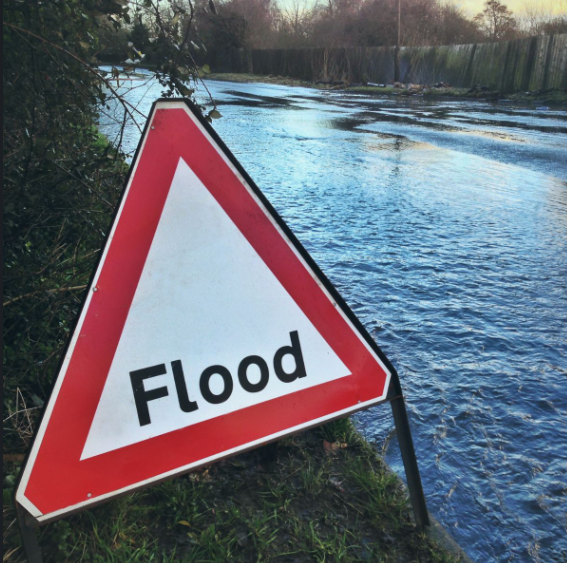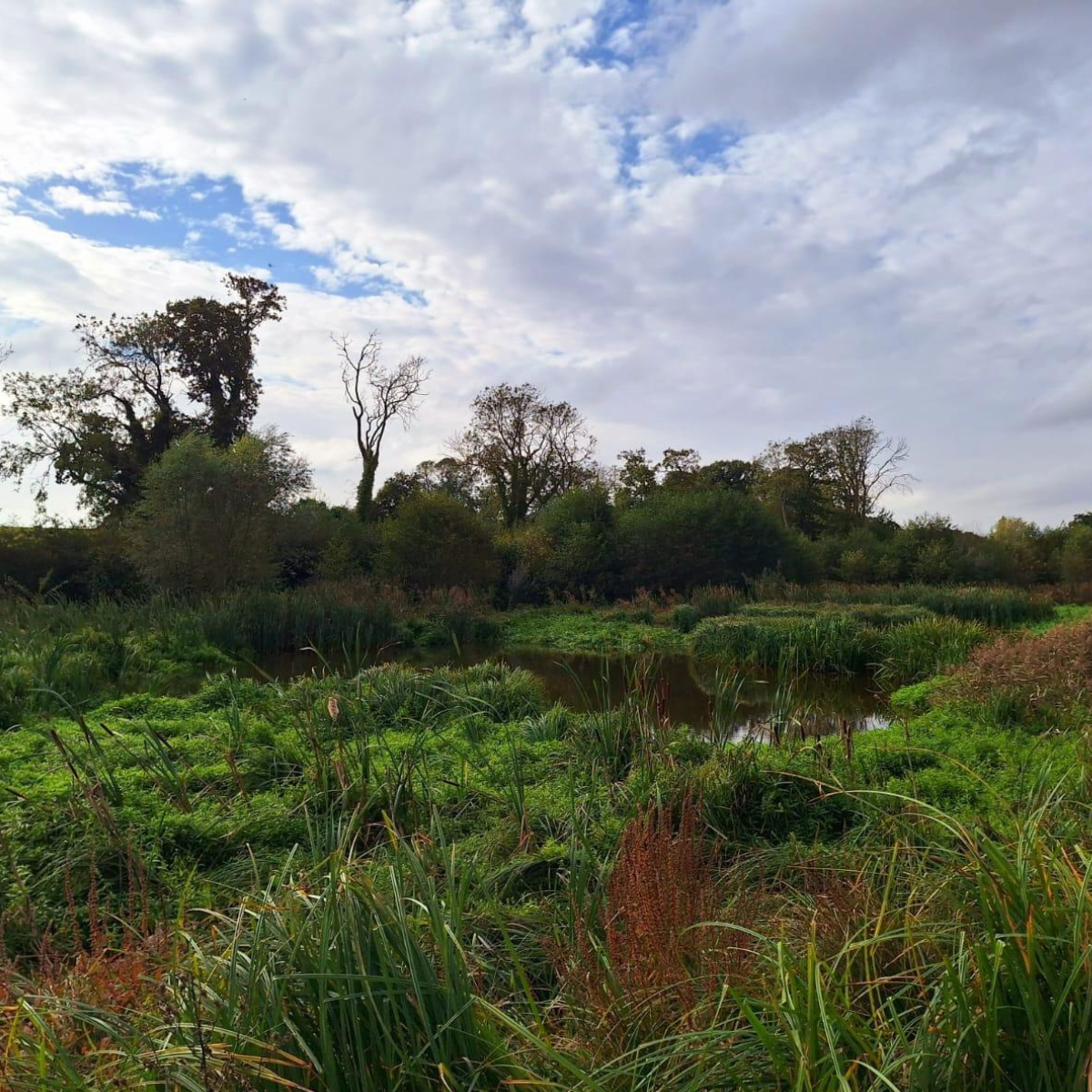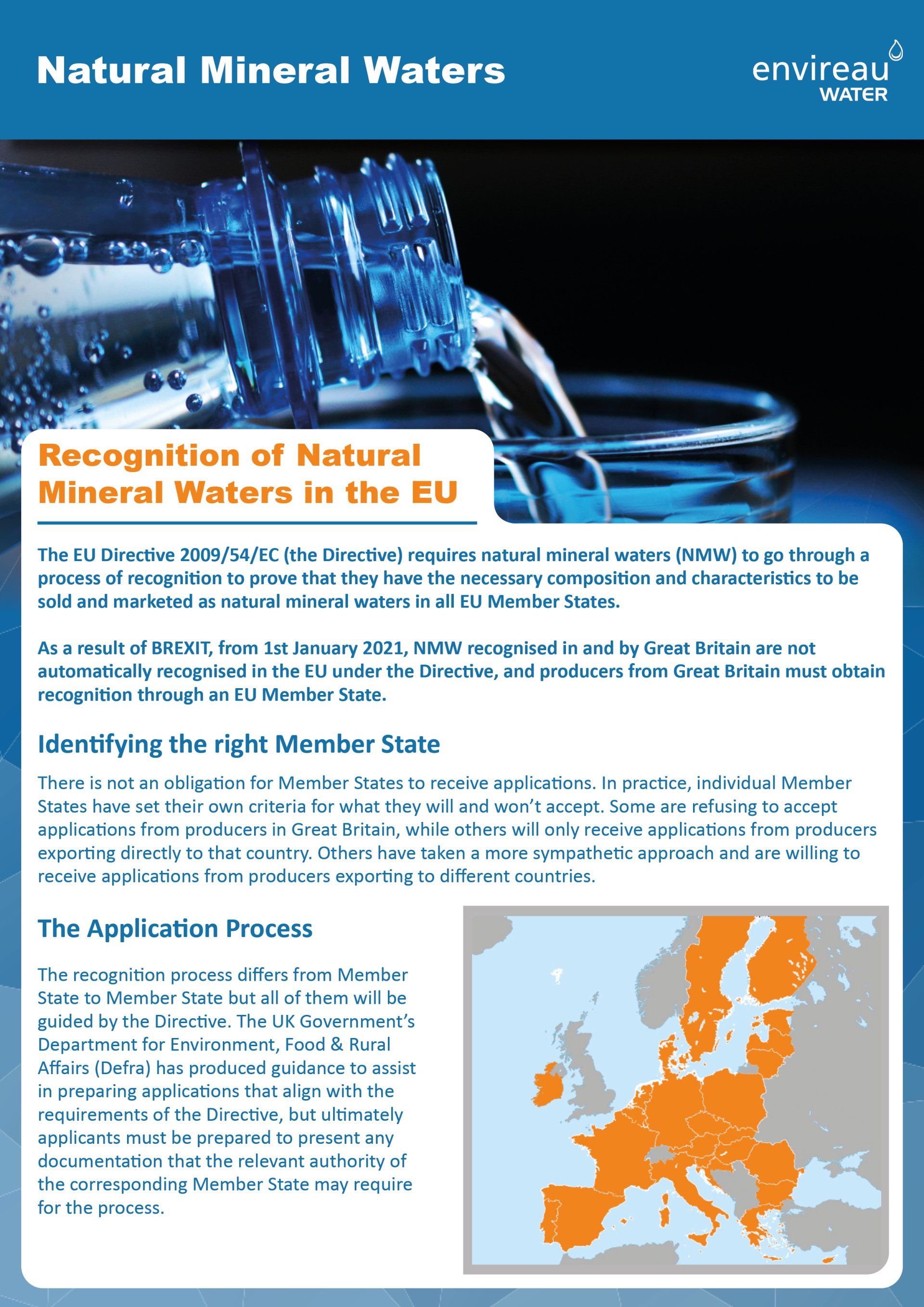Calling all Natural Mineral Water Producers
European water quality is renowned around the globe, and with this high standard comes strict frameworks. Natural Mineral Water produced in Great Britain was once automatically recognised, but following Brexit, this is now not the case.
Specific regulations distinguish natural mineral water and spring water from regular tap water. For Natural Mineral Water to be recognised in the EU, official recognition from the competent authority in a Member State must be published in the official journal of the European Union. With no obligation for Member States to receive applications and different recognition processes between them, gaining recognition can be seen as a big challenge!
However, by understanding the specific requirements of the
regulations and working alongside the relevant authorities, submitting a successful application can be achieved. We are currently working with several natural mineral water producers in Great Britain to obtain recognition in the EU, and with our strong and successful history providing guidance on the regulation of natural water systems, these new challenges are no different. Whether you require recognition in the EU, or you are an EU/EEA producer looking to continue exporting to Great Britain, take a look at our
bulletin below to learn more about the changes and how we can help you to keep trading...







Let's Connect
Get in touch if you have any questions
Newsbite Sign Up
Receive monthly emails highlighting technical and regulatory updates
Join the Newsletter
Thank you for signing up! Keep an eye on your inbox on the last Friday of every month for our monthly newsletter.
There was an error sending your submission. Please try again or email us on info@envireauwater so we can add you to the list!
Let's Connect
Get in touch if you have any questions
Join the Newsletter
We will get back to you as soon as possible
Please try again later
Let's Connect
Get in touch if you have any questions
Join the Newsletter
We will get back to you as soon as possible
Please try again later





